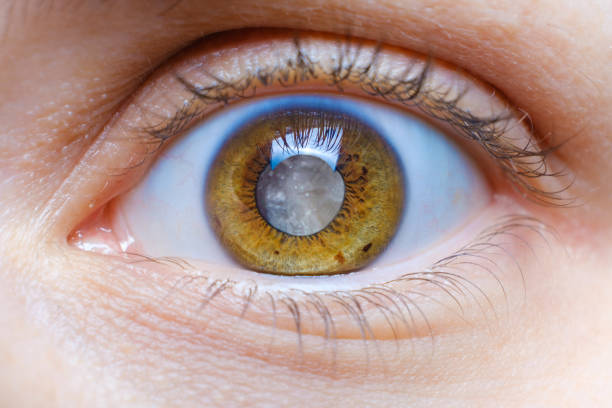In the midst of life after breast cancer—between follow-up scans, annual checkups, and cautious hope—many survivors share a common worry: cognitive fog. Dubbed “chemobrain,” it brings forgetfulness, confusion, and slow thinking, lingering long after treatment ends. Yet a new large-scale study from Samsung Medical Center in South Korea has uncovered a twist in the narrative: breast cancer survivors may actually face a lower risk of developing Alzheimer’s disease than women who never had cancer at all.
Published in JAMA Network Open, the study analyzed national health data and found that breast cancer survivors had an 8% lower risk of Alzheimer’s dementia (AD) than their cancer-free peers. That risk drop was especially pronounced in women over 65 and may be linked to radiation therapy, which emerged as a significant factor in the reduced dementia risk.
It’s a finding that turns long-held assumptions on their head—and opens the door to new questions about how cancer treatment and neurodegeneration intersect in the aging brain.
A Silent Shift in Survivor Health
With more than 2.3 million women diagnosed with breast cancer in 2022 alone, the disease remains the most common cancer among women worldwide. Thanks to earlier detection and improved therapies, survival rates for early-stage breast cancer now surpass 93%, transforming what was once a fatal diagnosis into a chronic condition many live with for decades.
As survival grows, so too does the importance of understanding long-term effects of treatment. While fatigue and joint pain may ease over time, the toll on cognitive function often remains murky. Some survivors report feeling as if their minds were never quite the same—yet scientific studies on long-term cognitive outcomes have been mixed.
Previous research has hinted that cancer survivors might be less likely to develop Alzheimer’s disease, but the data has been contradictory. Some studies suggested reduced dementia risk, while others warned of elevated vulnerability, especially among older women treated for breast cancer. Until now, the relationship between breast cancer and Alzheimer’s remained an unsolved puzzle.
Unraveling a Decade of Data
To dig deeper, researchers led by Dr. Hee Jeong Kim and colleagues at Samsung Medical Center turned to South Korea’s vast national health insurance database. They followed 70,701 breast cancer survivors who underwent surgery between 2010 and 2016, comparing them to 180,360 cancer-free women matched by age and health status.
The average follow-up period was 7.3 years—enough time to observe patterns in neurodegenerative disease as survivors aged.
The numbers were clear: breast cancer survivors developed Alzheimer’s disease at a rate of 2.45 per 1,000 person-years, compared to 2.63 per 1,000 in the cancer-free group. While the difference may appear small, it was statistically significant, especially in women aged 65 and older, who typically face the highest Alzheimer’s risk.
But this protective effect came with an expiration date. The reduced risk faded after five years, becoming indistinguishable from that of the control group. This time-sensitive pattern hints that the phenomenon is less about lifelong immunity and more about short-term changes—possibly tied to the biology of cancer treatment itself.
Radiation’s Unlikely Role
To understand what might be driving the lower Alzheimer’s risk, the researchers examined different treatment types—chemotherapy, hormone therapy, and radiation.
Of these, radiation therapy stood out. Women who received radiation had a 23% lower risk of Alzheimer’s (adjusted hazard ratio: 0.77), compared to survivors who did not receive radiation. The link was strong enough to suggest that radiation may be doing more than just destroying cancer cells.
This discovery runs counter to what many might expect. Radiation is typically feared for its potential to damage healthy tissue. Yet in this case, it may be reshaping neural processes or immune responses in a way that paradoxically protects against Alzheimer’s pathology—at least temporarily.
Other treatments—such as anthracycline chemotherapy or hormone-blocking drugs like tamoxifen and aromatase inhibitors—showed no statistically significant effect on Alzheimer’s risk, providing further focus on radiation as a key area for future research.
What Could Be Happening in the Brain?
The mechanisms behind this protective effect remain speculative. One theory suggests that inflammation—a common thread in both cancer treatment and neurodegeneration—might be altered by radiation in ways that reduce the buildup of Alzheimer’s-related proteins like amyloid-beta or tau. Another possibility is that immune responses activated during cancer therapy may offer temporary protection for brain health.
Alternatively, it could be a case of “selective survivorship.” The rigors of cancer and its treatment may naturally filter out individuals more susceptible to other degenerative diseases, leaving a healthier survivor population less prone to Alzheimer’s.
Whatever the explanation, the researchers emphasize that their findings are not a call to use radiation as a preventative treatment for dementia. Instead, they suggest this is a valuable window into how different disease pathways might interact, and how aggressive treatment against one condition could inadvertently shield against another.
A New Era of Survivor-Centered Care
For clinicians and survivors alike, this study offers more than data—it offers direction. As breast cancer becomes a long-term journey for millions of women, understanding how it affects cognitive aging becomes essential.
Dr. Kim and her team believe their findings could lead to improved dementia screening protocols tailored for cancer survivors, particularly in the critical first five years after treatment. More importantly, the study invites the medical community to consider cancer care and brain health not as separate silos, but as deeply interconnected dimensions of aging.
“This research doesn’t just shed light on Alzheimer’s risk—it underscores the complexity of survivorship,” said Dr. Kim. “We’re learning that what happens during cancer treatment can have ripple effects across the body and across time.”
A Future Full of Questions—and Hope
The study leaves several unanswered questions. Why does the protective effect fade after five years? Could radiation therapy be harnessed to influence other neurodegenerative diseases? And can certain women be identified in advance as likely to benefit from treatment-linked cognitive protection?
As researchers dig deeper into the data, what’s certain is this: cancer, Alzheimer’s, and aging are not isolated phenomena. They are part of a shared biological story—one that continues to evolve with every survivor.
And for now, that story includes a chapter where radiation becomes a quiet protector, helping the brain hold on to memory even as the body heals from war.
Reference: Su-Min Jeong et al, Alzheimer Disease in Breast Cancer Survivors, JAMA Network Open (2025). DOI: 10.1001/jamanetworkopen.2025.16468






